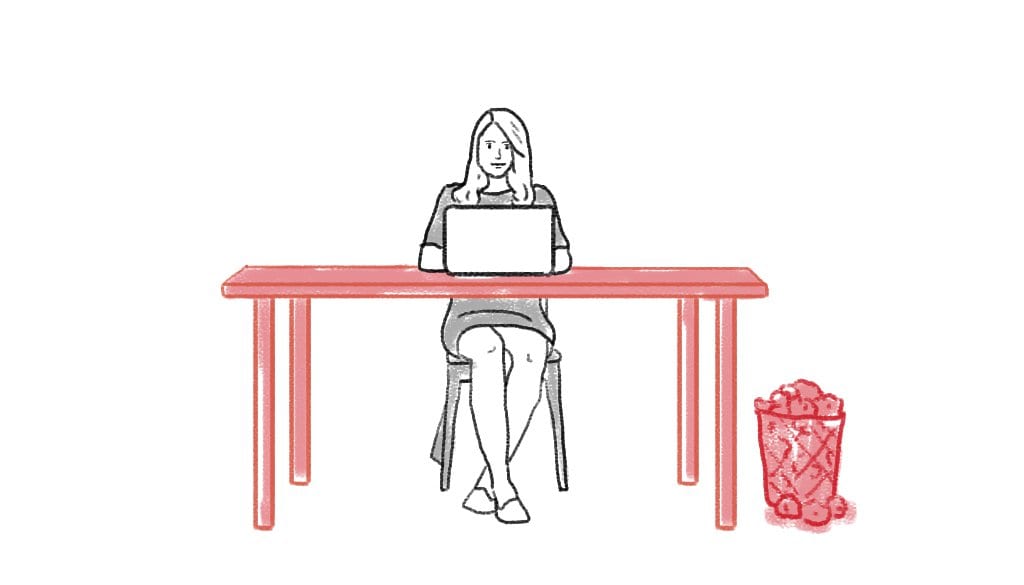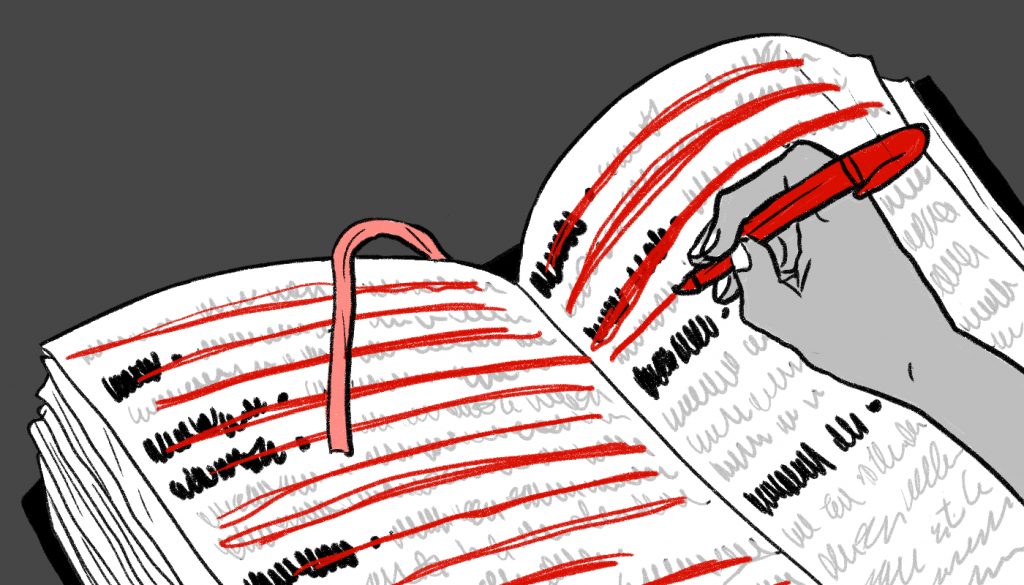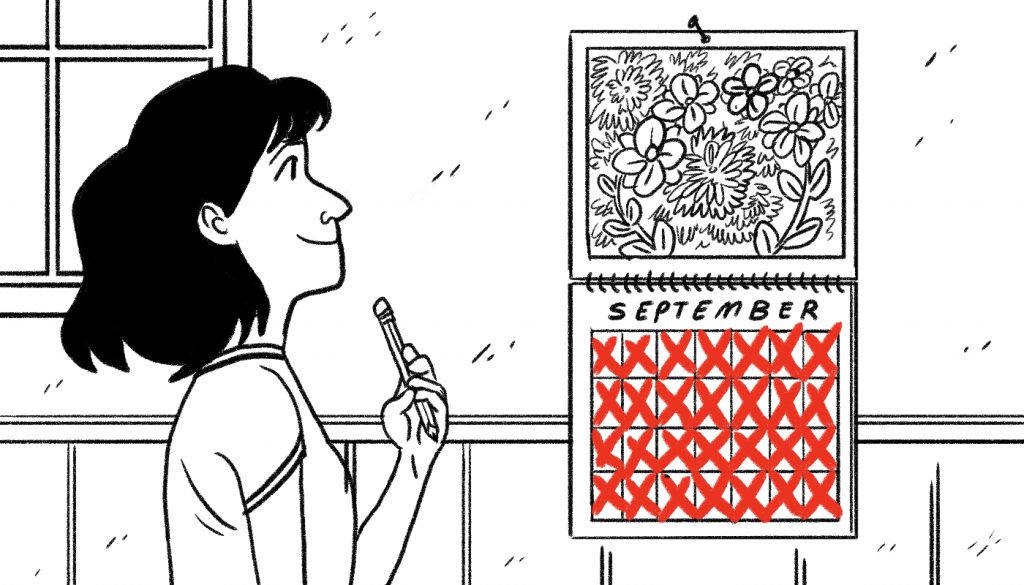There are 7 habits of highly effective artists that are essential for creative success. James Clear says habits are the compound interest of self-improvement. Creative habits are the compound interest in building a career in the arts. These are the habits of highly effective artists that made the biggest difference in my life and career.
1. Write Every Day

It’s hard to overstate the value of a daily writing habit. Words are the building blocks of reality. When you have access to your words, you have access to your thoughts. As my friend Sarah Peck says, “It’s really powerful to be able to tell your own story.”
Nothing I’ve ever done has changed my life as much as writing 1000 words a day. This one habit enables me to write blog posts, books, newsletters, and much more. It’s a habit of highly effective artists that acts as a powerful multiplier; it has the potential to impact every area of your life.
Even if all you do is write down a few sentences in a journal, you’ll be amazed by how much value that can add to your life.
2. Capture Your Ideas

You have hundreds of ideas every single day. How many of the ones you had yesterday do you remember? If you don’t remember any of them, that’s because your brain is a terrible place to store information.
Build a Second Brain
You have to capture your ideas if you want to capitalize on them. One of the best ways to do that is to build a second brain. A second brain is a digital repository that puts information, ideas, and anything else you want to remember at your fingertips.
You can customize your second brain based on your projects and workflow. For example, I have an editorial calendar in Notion where I write down every idea I have for a blog post. That way I never have a shortage of ideas to write about.
Use a Notebook
Another one of the habits of highly effective artists is that they always carry notebooks. Physical notebooks are portable, inexpensive, and distraction-free by default. The constraints of pen and paper make notebooks a beautiful platform for your imagination.
3. Deliberate Consumption
How much of what you read, listen to, or watch every day is a deliberate choice? Most people consume content by default. One of the habits of highly effective artists is that they make consumption choices by design.
They’re deliberate about the books they read, the websites they visit, etc. They avoid information overload, remember what they read, and take action on it. In my book, An Audience of One, I defined this as deliberate consumption.
What does this look like in practice? Recently, my roommate saw me flipping through one of Seth Godin’s books. He suggested that I spend a month re-reading all of Seth’s books. The purpose of deliberate consumption is to develop depth, rather than breadth, of knowledge.
4. Focus on the Process instead of the Outcome

Creative people often set ambitious goals like become a best-selling author or have millions of people read their blogs. While those are big, hairy, audacious goals, they can actually decrease your motivation.
When your goals are so big, the gap between where you are and where you want to be is so massive, it’s easy to sit around and do nothing today. And most outcomes are out of our control.
The one thing we can control is the effort we put into the process. This is one of the habits of highly effective artists you’ll notice in every domain. When you focus on the process, you increase the likelihood of a better outcome.
Rather than writing a best-selling book, you set the goal to write for one hour today. Process orientation fuels a growth mindset leads to visible progress and allows us to leverage the power of creative momentum.
5. Show up Every Day
There’s profound power in consistency. It helps you work less and get more done. Rather than doing 10 things every day, you do two things for 5 days in a row. It’s the same result with less effort. Consistency also creates the virtuous cycle of creative momentum.
6. Treat it like a Job
In his interview on The Unmistakable Creative, Ryan Holiday said, “Whatever you do, it’s a job.” If most people showed up for their jobs the same way they show up for their creative work, they would be fired. Yet they wonder why they’re not making progress with any of their ideas. Nobody waits until they’re inspired or in the mood to show up at work. They just do. As Steven Pressfield says, professionals act in anticipation of inspiration.
7. Reflect
By its nature, a good amount of creative work is a form of reflection. Reflection allows you to turn down the volume of the world around you. It gives you a much-needed opportunity to hear the sound of your creative voice.
As Brian Scudamore says, successful people spend 10 hours a week just thinking. That’s why it’s one of the most important habits of highly effective artists. So what does this look like in practice?
- Meditation is not only an invaluable tool for reflection. It helps you stress less and accomplish more.
- Exercise allows you to experience the joy of movement. When you’re stuck mentally, move physically.
Taking the time to slow down and reflect is a productive way of doing nothing. It gives you access to wisdom.
Developing the 7 Habits of Highly Effective Artists
Reading about the habits of highly effective artists isn’t useful unless you take action on what you read. So rather than treat this as more productivity porn, which feels productive but leads to nothing, take action on these ideas.
Start Small
Don’t underestimate the power of starting small. When you break a big project up into the smallest, most manageable parts it becomes less daunting. Write a paragraph instead of a page or a sentence instead of a paragraph.
Follow your Curiosity
Curiosity is a beautiful compass for navigating the geography of a creative life. It’s one of the keystone habits of highly effective artists.
When you follow your curiosity, you’re much more likely be engaged in what you’re doing. Since passion follows engagement, pay close attention to what you find engaging. You may just find your passion and become so good they can’t ignore you.
Curiosity leads to beautiful questions that produce creative breakthroughs and great works of art.
Do One Thing you don’t Feel like Doing
The other day I was talking to my friend Charmaine and she told something that I think is the embodiment of what it means to be disciplined: “Every day I do something I don’t feel like doing.’
Discipline is about doing mundane, repetitive things on a daily basis. It doesn’t have to be related to your creative work. The point is to get into the habit of following through and taking consistent action.
Read, Watch or Listen to Something Inspiring
What you consume has a huge impact on what you create. Clicking on 10 Buzzfeed lists won’t turn you into the next Ernest Hemingway. Treat the information you consume like the food you eat.
Developing the habits of highly effective artists isn’t something that’s going to happen overnight. It takes practice and repetition. So do something today that you’ll be glad you did 10 years from now.
Have you lost touch with your creative capacity?
I’ve put together a list of interviews with artists, authors, and entrepreneurs to help you regain your creative confidence and make your ideas happen. Just click here to listen.
